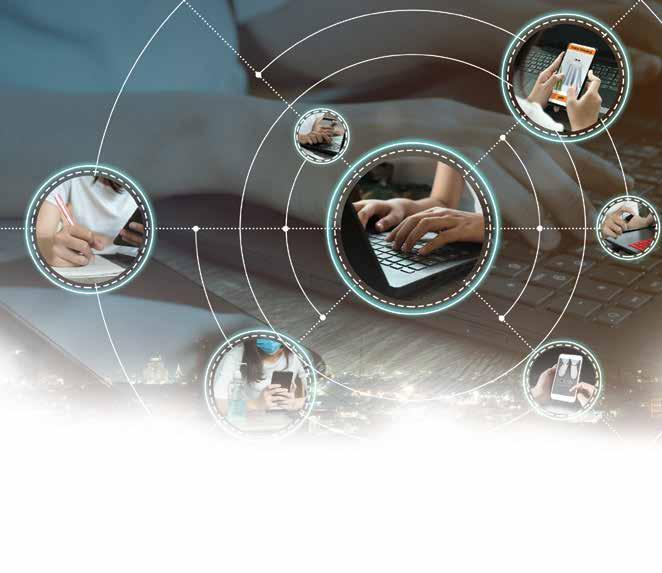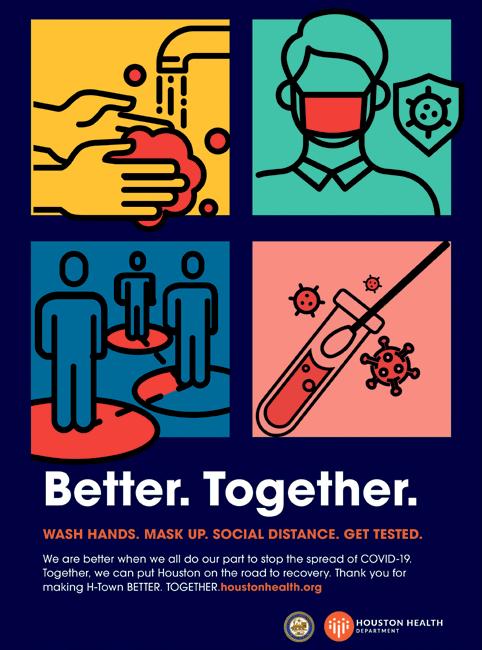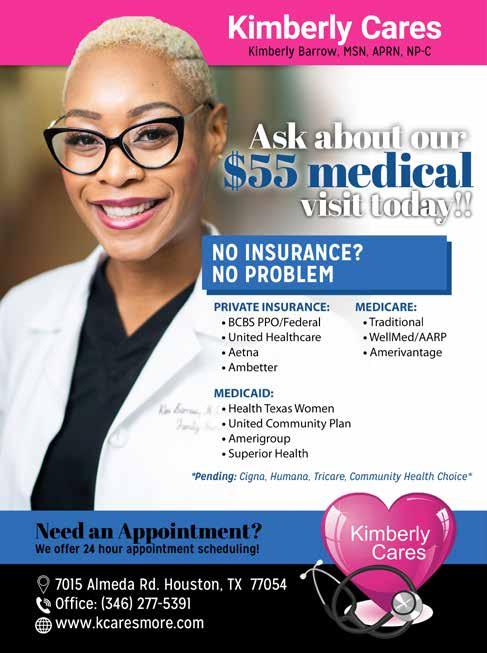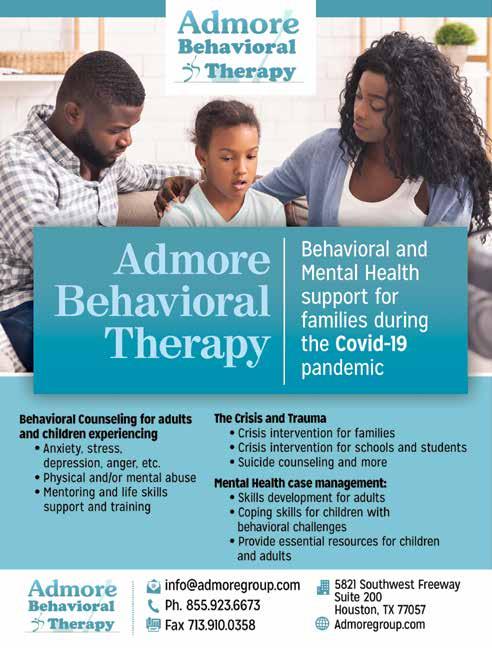






 By Thor Christensen American Heart Association News
By Thor Christensen American Heart Association News
Finding out you are pregnant is life-changing and you may experience a range of emotions. New parents have lots on their plate, especially with concerns around COVID-19. This can leave many feeling overwhelmed from information and advice, which can lead to skipping the important step of making appointments for themselves and their baby.
"Pregnancy can be an exciting time for many. However, pregnancy can also bring a lot of questions, wondering and worry for women and their partners," says Dr. Carolyn Brooks, senior director, Clinical Capability, UnitedHealthcare Community & State. "It's important to take steps throughout the pregnancy to connect to care and resources that can support mom and baby, from early in pregnancy all the way into the first years of a baby's life."
Dr. Brooks and the experts at UnitedHealthcare share some important things pregnant women should know during the pandemic and beyond:
To ensure optimal health for you and your baby, prenatal appointments are essential and the earlier in the pregnancy the better. At the first appointment, a health care expert will confirm your pregnancy and work with you to determine a healthy plan for the future. During your prenatal appointments, your provider will measure your weight and blood pressure and screen for conditions such as hypertension, diabetes, anemia and hepatitis B, which are important to detect and treat during pregnancy.
This is also a good time to ask questions you may have or explore any early symptoms like morning sickness you may be experiencing to learn about common management and nutrition. You can also ask about the many programs and resources that can help you throughout your pregnancy, from getting you access to prenatal vitamins and baby supplies to connecting you to case management programs, group support options and other programs that could address substance use and behavioral health needs.
There are a variety of programs that can help you get what you need for a successful pregnancy, continuing into the first years of your child's life. Use the many community resources available, ask your health care team to assist in supporting your care coordination and utilize the opportunities for enhanced programs from your insurance provider. When you inquire, you may find you qualify for numerous programs, particularly if you're experiencing difficult times.
As a first step, if you are a UnitedHealthcare member, you can call the number on your insurance card to determine what resources are available to you as there are a range of programs and support services the company can offer or connect you with.
Even during COVID-19, you should keep prenatal
and postpartum appointments with your healthcare provider. In some instances, you may have an option to use telehealth for some appointments, which allows you to meet with your provider over a phone or computer and is a safe option, if recommended.
Other appointments will still need to take place in person. Health care facilities are taking extra steps to ensure a safe, clean environment. You can be proactive and help stay healthy during in-person visits by practicing social distancing, washing your hands often and wearing a mask.
The CDC recommends a COVID-19 vaccine for pregnant women so make sure to ask your health care provider when you should get this vaccine and other important vaccinations to protect you and your baby.
Being pregnant or taking care of a new baby during CO VID-19 may have you feeling un certain, nervous or worried.
You aren't alone.
These are normal feel ings to have, especially during a pandemic, and it's important to first acknowledge and then take steps to ask for help when needed to manage stress, anxiety or depression during this time.
While it can be dif ficult, try to focus on yourself and your mental health. Practicing self-care by creating a daily routine and taking breaks from the news can help. If you're feel ing lonely or isolated, talk to family, friends or your health care pro vider. You are not alone in this journey.
For more information and resources, visit https://everypregnancy.com.
Source: BPT
Pfizer and BioNTech officials have confirmed that they have approached federal regulators to authorize emergency use of their coronavirus vaccine for children ages 5 to 11.

It’s estimated that more than 28 million children would become eligible if the request meets approval. With school re-openings contributing to an uptick in Covid-19 diagnosis, many have expressed a desire for vaccines for children.
“Over the past nine months, hundreds of millions of people ages 12 and older from around the world have received our COVID-19 vaccine,” Albert Bourla, Pfizer’s Chairman and Chief Executive Officer, said last month after a clinical trial reportedly found that the Covid-19 vaccine was safe and generated a “robust antibody response” in children ages 5 to 11.

The September study counted as the first such results released for that age group for a US Covid-19 vaccine.
“We are eager to extend the protection afforded by the vaccine to this younger population, subject to regulatory authorization, especially as we track the spread of the Delta variant and the substantial threat it poses to children,” Bourla said.
“Since July, pediatric cases of COVID-19 have risen by about 240 percent in the U.S. – underscoring the public health need for vaccination. These trial results provide a strong foundation for seeking authorization of our vaccine for children 5 to 11 years old, and we plan to submit them to the FDA and other regulators with urgency.”
Source: National Newspaper Publishers Association
The U.S. Department of Education recently announced an overhaul of the Public Service Loan Forgiveness (PSLF) Program.

Education Department officials said they would implement the overhaul over the next year and make the program live up to its promise.
If you are employed in the US, it's more likely than not that you worked remotely this past year.
52% of Americans have done part or all of their jobs from home during the pandemic. That's even more than the number of Americans with a college degree.
Over time, we've perfected some aspects of remote and hybrid working - from comfortable chairs to Zoom happy hours.
But there's one thing that remains a major problem for most people: cybersecurity.
Work-from-home arrangements have contributed to a 238% increase in global cyberattack volume during the pandemic. And the attacks haven't simply grown in amount - they're more costly, too. The average cost of a data breach rose by 10% to a staggering $4.24 million.
Why? Because employees aren't following cyber standards and best practices. For instance, the vast majority of employees are using work devices for personal tasks and personal devices for work. Some of you might even be thinking, "What's wrong with that?"

Now, more than ever, we all need to take cybersecurity seriously. "Cybersecurity is a top priority because our clients entrust us with their sensitive information and personal finances," says Bashar Abouseido, Managing Director and Chief Information Security Officer at Charles Schwab. "We make it everyone's business. We train every employee on best practices so that our clients can rest assured that their money, investments and financial futures are safe."
You might be thinking, "Another lecture about compliance? Did my IT department pay you to write this?" But everyone has a stake in cybersecurity.
• It impacts the employer. Businesses can lose more than money - their reputation, customers and
even ability to stay open are at stake. In fact, 60% of small and midsize businesses that are hacked go out of business within six months.
• It impacts the employee. Not only can hackers unlawfully access company data through employees, but personal data can also be compromised. From social media accounts to personal finances, sensitive information becomes vulnerable without proper safeguards in place.
• It impacts the client. It takes a lot of trust to put your own data in someone else's hands. Sometimes, the stakes are incredibly high. Financial services companies, for instance, are entrusted with everything from employment information and income to Social Security numbers and retirement savings.
Here are four ways remote employees can protect themselves, their clients and the companies they work for:
• Don't mix business and personal devices: Using personal devices for work-related activities can easily put company data at risk if there is a breach. And that goes both ways: If the company is hacked, personal data may also be stolen.
• Avoid public Wi-Fi: It's great when you don't need a password to connect to the internet at your local coffee shop or airport, right? Hackers agree! Public Wi-Fi networks are inherently insecure, and that means it's best to avoid them if at all possible.
• Get a virtual private network (VPN): These networks provide encrypted connections, ensuring that sensitive information is safely transmitted.
• Use multi-factor authentication (MFA): When transmitting sensitive information over the internet, look for websites that ask you to verify your identity by receiving an email, text or call. Microsoft recently found that MFA prevents an astonishing 99.9% of all cyberattacks.
Visit www.aboutschwab.com/cybersecurity to learn more about cybersecurity and how to keep yourself safe.
Source: BPT
According to a news release, the policy will result in 22,000 borrowers who have consolidated loans –including previously ineligible loans – being immediately eligible for $1.74 billion in forgiveness without the need for further action on their part.
Another 27,000 borrowers could potentially qualify for an additional $2.82 billion in forgiveness if they certify additional periods of employment.
In total, the Department estimates that over 550,000 borrowers who have previously consolidated will see an increase in qualifying payments with the average borrower receiving another two years of progress toward forgiveness.
Many more will also see progress as borrowers consolidate into the Direct Loan program and apply for PSLF, and as the Department rolls out other changes in the weeks and months ahead, officials stated.
news release.
“The system has not delivered on that promise to date, but that is about to change for many borrowers who have served their communities and their country,” Cardona continued.
“Teachers, nurses, first responders, servicemembers, and so many public service workers have had our back especially amid the challenges of the pandemic. Today, the Biden Administration is showing that we have their backs, too.”
Visit www.ed.gov to view a Fact Sheet about the Student Loan Forgiveness Plan, including who it affects.
Source: National Newspaper Publishers Association
“Borrowers who devote a decade of their lives to public service should be able to rely on the promise of Public Service Loan Forgiveness,” U.S. Education Secretary Miguel Cardona stated in the



